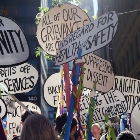
Strategy Is a Craft
An interview with Deepak Bhargava and Stephanie Luce.


An interview with Deepak Bhargava and Stephanie Luce.
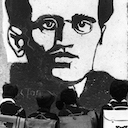
The Italian theorist continues to offer important insights for organizers in the socialist lineage.

The activists who took over City Hall have made lasting gains while also confronting the limits of their power in office.

Grassroots groups can help elected officials resist the pressures of mainstream political culture.

Abolitionists and advocates of criminal justice reform in Los Angeles County have amassed some impressive victories, laying out a vision for reducing incarceration and providing care that could have national significance.
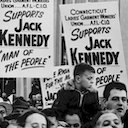
As much as organizers might wish for strategic unity, movements are diverse and messy formations that involve both inside and outside politics.

Many of today’s organizers look to the long history of party realignment for strategic orientation. Could they drive a reordering of American politics?
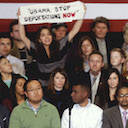
Politicians fear the disruptive power of a mobilized base, even when it helps them succeed.
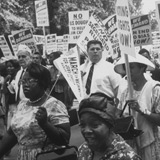
Social change is seldom either as incremental or predictable as insiders suggest. Instead, movements win by changing the political weather, turning demands considered unrealistic into ones that can no longer be ignored.

A case study in the strange alchemy of disruption and sacrifice.

Cross-posted from Waging Nonviolence. On November 9, 1989—twenty-five years ago—huge crowds of East Germans descended on the Berlin Wall. The restless citizens were responding to an announcement by authorities suggesting that the government would loosen travel restrictions. In truth, those …
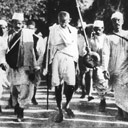
Gandhi’s demands were ridiculed and his settlement with the British disappointed many. But the Salt March was a key symbolic win that spurred India’s independence movement toward victory.
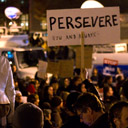
How do we know when movements have died—and when are they primed to revive?

The rapidly expanding victory around same-sex marriage demonstrates how a transformational vision can create social change.
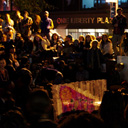
It is an old question in social movements: Should we fight the system or “be the change we wish to see”? Should we push for transformation within existing institutions, or should we model in our own lives a different set of political relationships that might someday form the basis of a new society?